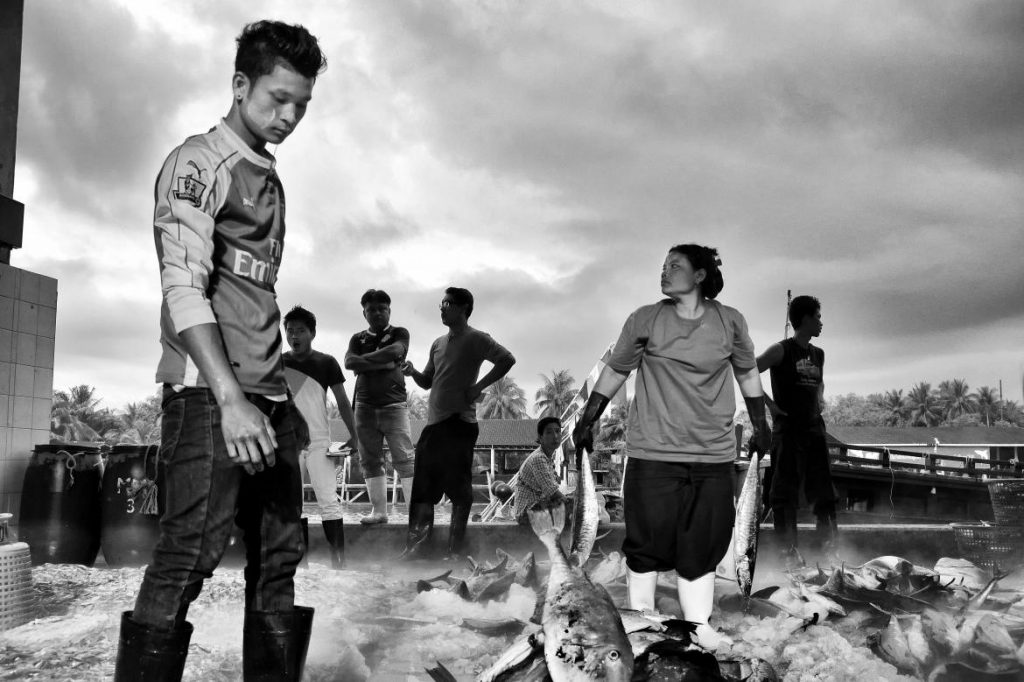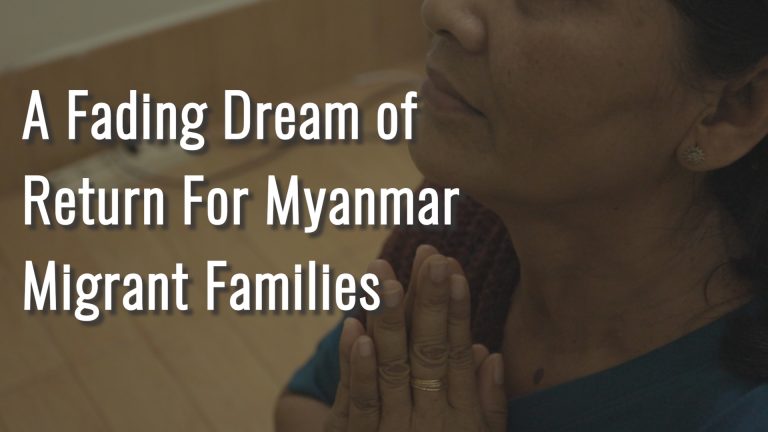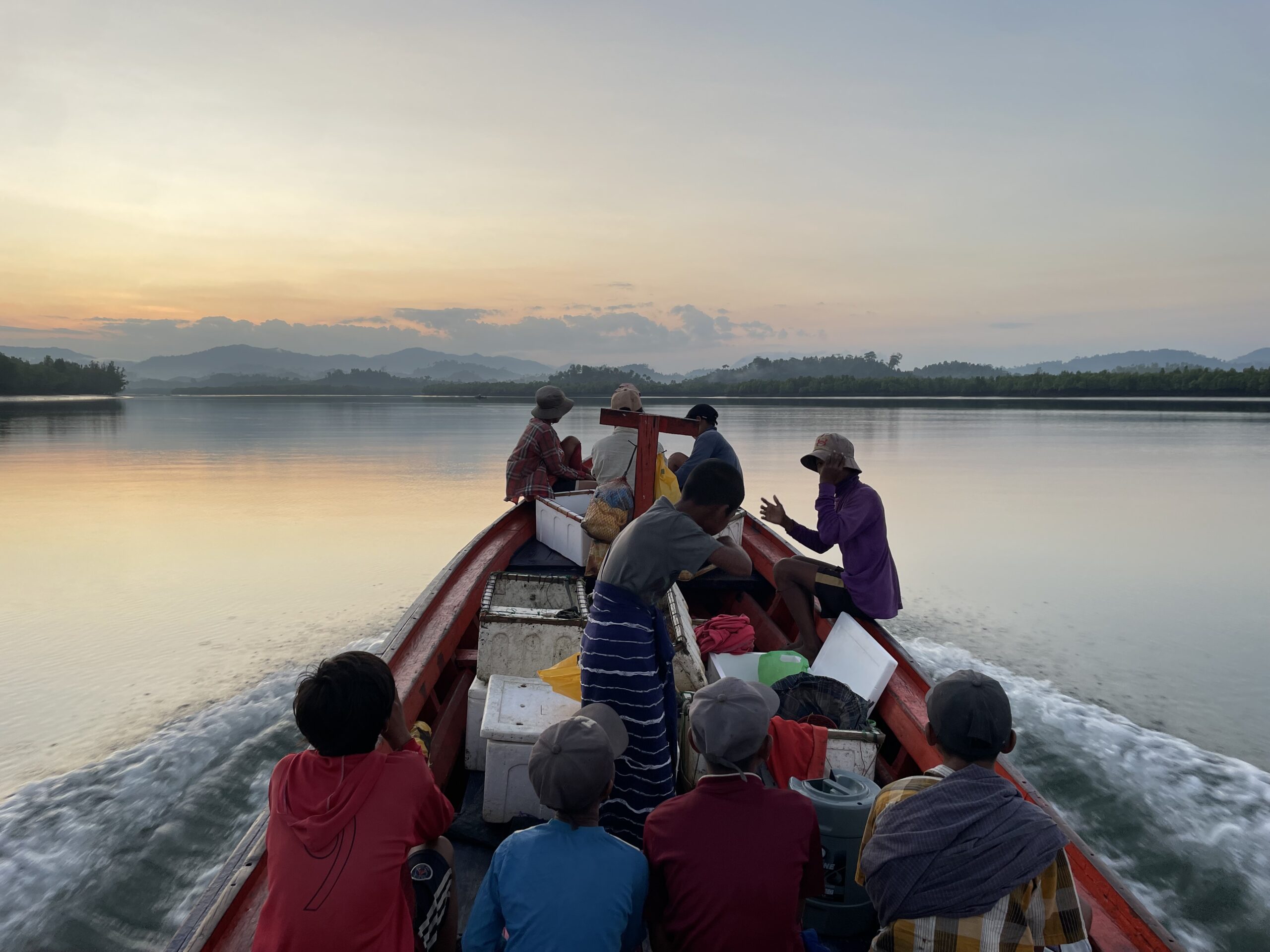As two Myanmar migrant workers await the verdict in the controversial Koh Tao murder case, four of their compatriots are facing trial in Thailand over a murder for which some believe they were framed.
The number of Myanmar migrant workers in Thailand is estimated at between 2.5 million and 3 million and they usually have the dirtiest and lowest-paying jobs, mainly in factories and the construction sector.
At Ranong, a fishing town on the Andaman Sea coast in southern Thailand, there are more than 100,000 Myanmar migrant workers, a number believed to exceed the town’s Thai population. Thai towns along the border with Myanmar further to the north are host to many humanitarian organisations that help the migrants, but the number of NGOs in Ranong can be counted on one hand.
“The need is here,” said Father Kevin, the director of the Marist Asia Foundation, a Catholic humanitarian organisation also known as the Marist Mission Ranong. “Right away in Ranong, it’s very obvious there are no NGOs for Burmese migrants.”
The foundation provides migrant workers with education and health support, including helping those with HIV-AIDS to obtain anti-retroviral drugs from the hospital. It also provides basic supplies of food to families unable to work because of illness.
“Our role is mainly to help with hospital access because for Burmese it’s like another world to go there, and they are afraid and embarrassed of their disease,” said Father Kevin, a Filipino who came to Ranong about nine years to head the Marist Mission Ranong.
Support more independent journalism like this. Sign up to be a Frontier member.
Before help was available to migrant workers with AIDS they “just died in their rooms,” said Father Kevin. “Nobody cared,” he said.
_dsf6044.jpg
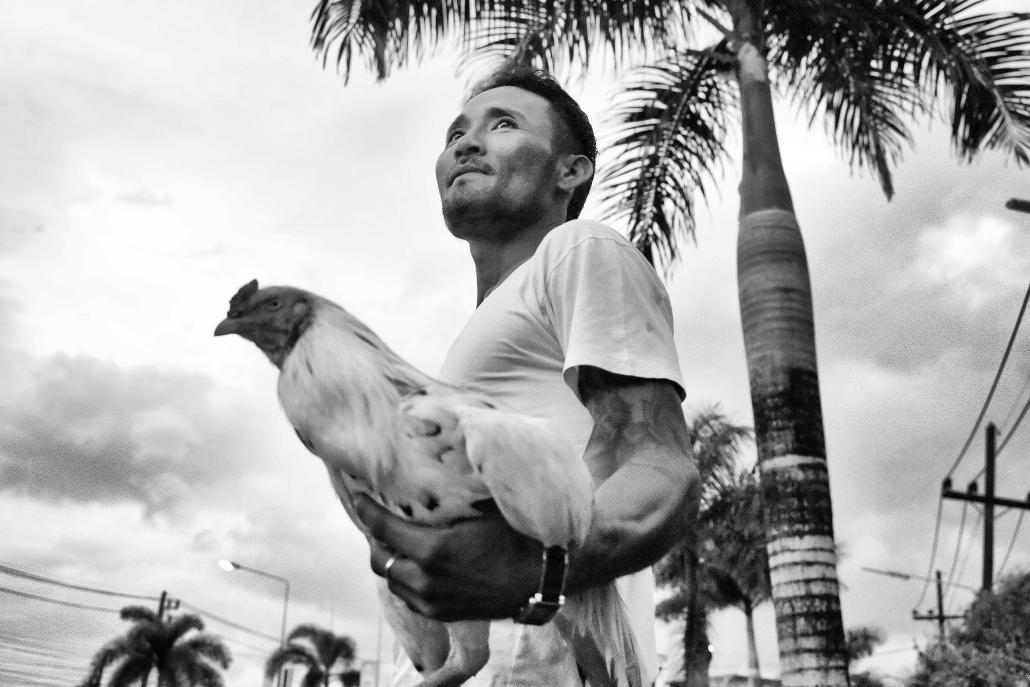
A Myanmar migrant and a chicken wait to cross a street in the migrant quarter of Ranong. (Brennan O’Connor / Frontier)
The high incidence of HIV-AIDS among the Myanmar population in Ranong is partly a consequence of working in the fishing industry, the main source of employment for the town’s migrant workers.
“There are many fishermen, and normally they are in the ocean for four months or five months without seeing land. When they come back they have four months of salary. So they drink, they do drugs then after go see prostitutes and that’s it; they got it,” said Father Kevin. “Then they go back to their wives that have been waiting for them. The wives get pregnant and the child also get HIV/AIDs. And of course some men also have some other partners, so they also spread it (that way).”
Most of the migrants assisted by the foundation are from Dawei and other towns in Tanintharyi Region, at the southern tip of which is Kawthaung, a short boat ride from Ranong.
Father Kevin said he had visited Dawei and understood why some of its residents have sought work in Ranong. “It’s just rice fields, and if you are a young man, or a young woman, I don’t think you would want to plant rice for the rest of your life,” he said.
The prejudice and discrimination that Myanmar migrant workers experience from some Thais is a daily test of the workers’ mental endurance. It is also something that Father Kevin and his colleagues have experienced as a consequence of helping migrant workers.
Myanmar activist and former migrant worker U Htoo Chit founded the Foundation for Education and Development in 2000 to help his compatriots cope with the many challenges they experience as workers in Thailand. The FED is based at Takua Pa, in Phang Nga Province south of Ranong, where it has a field office.
“Burmese migrants are a marginalised community in Thailand,” U Htoo Chit said. “They work the 3D jobs; it means difficult, dirty and dangerous,” he said. “Every day they are facing a lot of labour exploitation and also human rights violations.”
_dsf3077.jpg
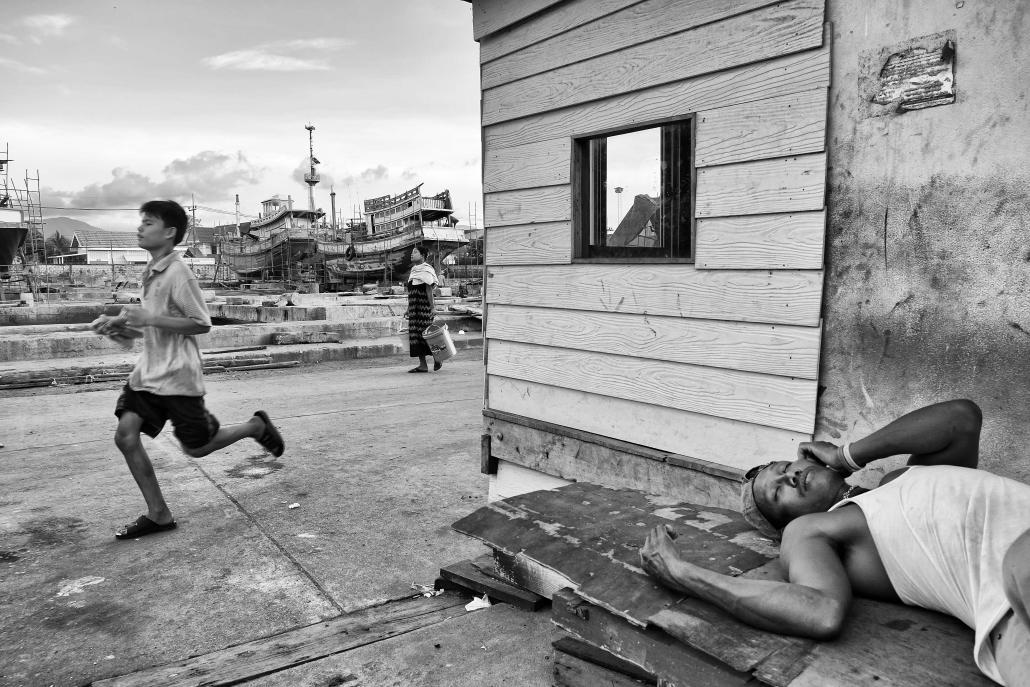
Dusk falls on the boat repair yard at Ranong. (Brennan O’Connor / Frontier)
After participating in the 1988 national uprising in Myanmar, U Htoo Chit was forced to flee his native Kayah State to Thailand, where he established FED at Sangklaburi in Kanchanaburi Province. After the 2004 tsunami FED was relocated to Phang Nga to provide assistance to Myanmar affected by the disaster.
“Our main object is for the protection and promotion of migrant workers in Thailand,” said U Htoo Chit. “Migrant worker development means we are providing the migrant worker rights and providing the legal assistance or legal aid to the migrants who are facing the different kinds of violations in Thailand,” he said.
FED recently organised a legal defence team for four young migrants charged with the murder of a Thai-Myanmar woman known as Apple. The 20-year-old Ranong native was stabbed 17 times with a knife at about 7pm on September 28.
FED strongly believed that the four men were not involved in the murder, said U Htoo Chit.
Among those charged was migrant worker Ko Moe Zin Aung, 15, who was arrested near his workplace in Ranong’s port area on October 16.
Police said cuts on his body and clothing linked him to the crime. Ko Moe Zin Aung said the cuts were from a motorbike accident a week earlier. He also said he was at work when Apple was killed, and his Thai employer and colleagues have verified that he finished work at about 8pm, an hour after the murder occurred, said U Htoo Chit.
After being held in custody for a week during which he was said to have been beaten daily, Ko Moe Zin Aung reluctantly signed a confession on October 22. He signed the confession only because police said he would be released if he did so, said Ko Par Kyaw, a Myanmar activist closely involved with the case who is the director of an organisation in Ranong that provides free funeral services for migrant workers.
_dsf6068.jpg
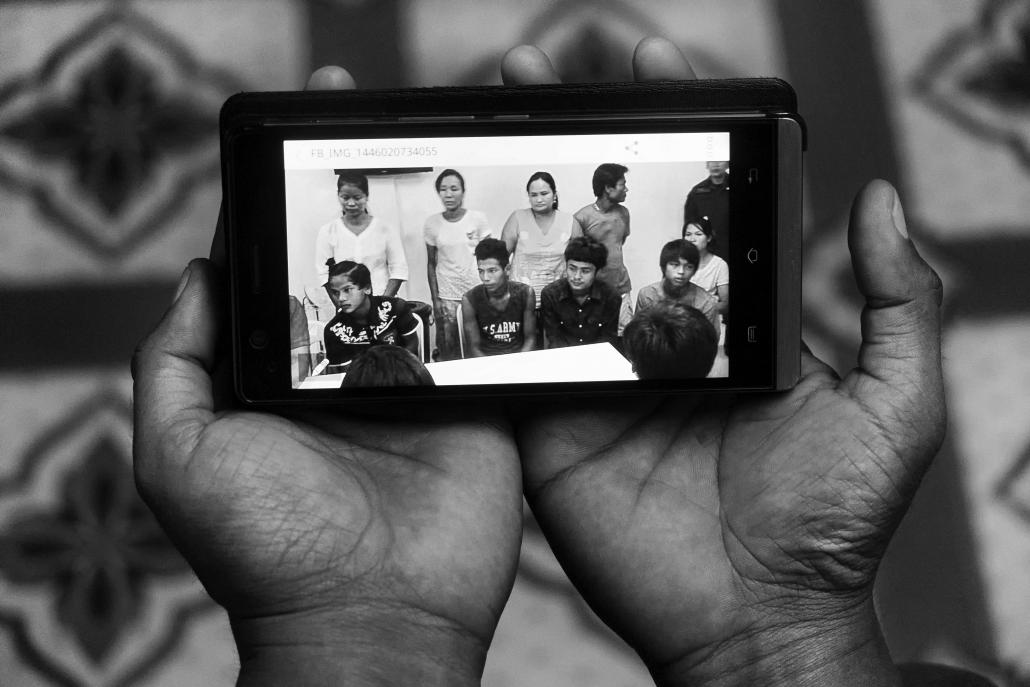
Ko Par Kyaw shows a photo taken in the Ranong police station of the four migrant workers who were charged with the murder of Apple. (Brennan O’Connor / Frontier)
On the same day that Ko Moe Zin Aung signed a confession, police arrested the other three suspects on a fishing trawler. All are said to have been with Ko Moe Zin Aung at his home after he finished work on the night of the murder.
The Thai employer at the fish processing factory where Ko Moe Zin Aung worked told police he had CCTV footage on his computer to prove that the boy was working at the time of the murder, said Ko Par Kyaw. Police are said to have taken the computer, telling the employer they needed to examine the footage. The Thai employer told Ko Par Kyaw that when the police returned the computer, the footage had been erased.
Ko Par Kyaw, who is friend of Apple’s mother, said an account of what really happened on the night of the murder is widely known in Ranong.
According to this account, there was a love triangle among Apple, her friend and a boy they both liked. The friend was jealous because the boy liked Apple. On the night of the murder, Apple’s friend invited her to meet outside her house and have dinner. Ko Par Kyaw said several migrant workers told him they saw Apple and the friend arguing but did not witness an attack.
Ko Par Kyaw says Apple’s friend is rich and her parents own a big seafood processing plant and have friends in high places, including a senior police officer.
“The whole of Ranong knows her friend did it,” Ko Par Kyaw said.
Apple’s parents knew their daughter was meeting her friend the night of the murder and suspect her of being the killer, Ko Par Kyaw said.
Apple’s friend has left Ranong and some say she went to Malaysia.
Apple’s mother has moved to Bangkok because she could no longer stand to live in Ranong after the travesty involving the death of Apple, Ko Par Kyaw said. The rest of the family plans to join her soon.
FED has enlisted the support of two Thai NGOs, the Human Rights Lawyers Association and the Human Rights and Development Foundation, to defend the four suspects. A trial date has been set for January 4.
In September 2014, British nationals Hannah Witheridge and David Miller were brutally murdered on Koh Tao, a resort island in the Gulf of Thailand. Witheridge was raped before she was killed. Two young Myanmar migrant workers were charged with the crimes after signing confessions that they later retracted on the grounds they had been obtained under duress.
A Thai forensic expert, Dr Pornthip Rojanasunand, testified at their trial in September this year that no trace of the suspects’ DNA was detected on the garden hoe they were alleged by police to have used as a murder weapon.
The trial of the pair, both ethnic Rakhine, has generated controversy amid suggestions that the murder investigation was bungled.
The trial was told in August this year that the translators used by the Thai police to question the suspects were Rohingya roti vendors with basic knowledge of Thai and the Rakhine dialect, media reports said.
A verdict in the trial is expected on December 24.
U Htoo Chit said the FED had been doing what it can to provide support to the two suspects.
“With the Koh Tao murder case the international media has been paying close attention because the victims are British citizens. It is a little bit different [with Apple’s murder investigation], but at the same time we also believe they are scapegoats,” he said.
Title photo: Migrant workers in Ranong. (Brennan O’Connor / Frontier)


